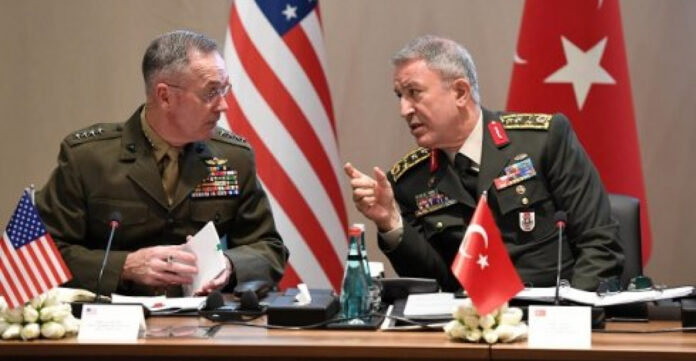Author: Didem Buhari Gülmez
Affiliation: İzmir Katip Çelebi Üniversitesi
Organization/Publisher: Contemporary Politics, Routledge
Date/Place: June 9, 2020/ UK
Type of Literature: Journal Article
Number of Pages: 19
Link:https://www.tandfonline.com/doi/full/10.1080/13569775.2020.1777038?scroll=top&needAccess=true
Keywords: US–Turkey Alliance, NATO, Obama, Trump, AKP, Fear of Entrapment
Brief:
Turkey always remained relevant in the geopolitical clusters of Europe, Middle East, North Africa, and Central Asia, generally during the Ottoman expansion and particularly after its establishment as a Republic in 1923. The intimidating behavior of Soviets after World War II seeded the roots of the Turkish-US alliance in 1945. Since then, the relations between a capitalist hegemon and its Eurasian ally have faced various ups and downs throughout the Cold War era. Additionally, after the disintegration of the Soviet Union, Turkey struggled to keep its significance relevant in Western policy-making corridors. This article explains that the orientation of Turkish foreign policy in the post-Cold War era depends on the following determinants: neo-traditionalism and continuous enactment of Sèvres syndrome, pro-Western liberalism to enhance relations with EU and NATO, social democratic constructivism to emphasize Turkey’s ability for the alliance of civilizations, and conservative constructivism of its ruling party to ensure Turkey’s role as a representative of Islamic civilization. The author emphasizes the importance of territorial integrity as a core element in Turkey’s foreign policy making. Every transactional deterioration happened whenever Ankara perceived threats to its identity and territory. The article concludes that due to transformation of US foreign policy towards Turkey, specifically during President Obama’s administration, Turkey also adopted multidimensional policy, i.e. simultaneous working relations with all neighbors and regional influencers. Turkey’s increased military presence in the Middle East and North Africa shows its role as a rising hegemon that guarantees peace and security across the region.
By: Muhammad Taimoor Bin Tanveer, CIGA Senior Research Associate




